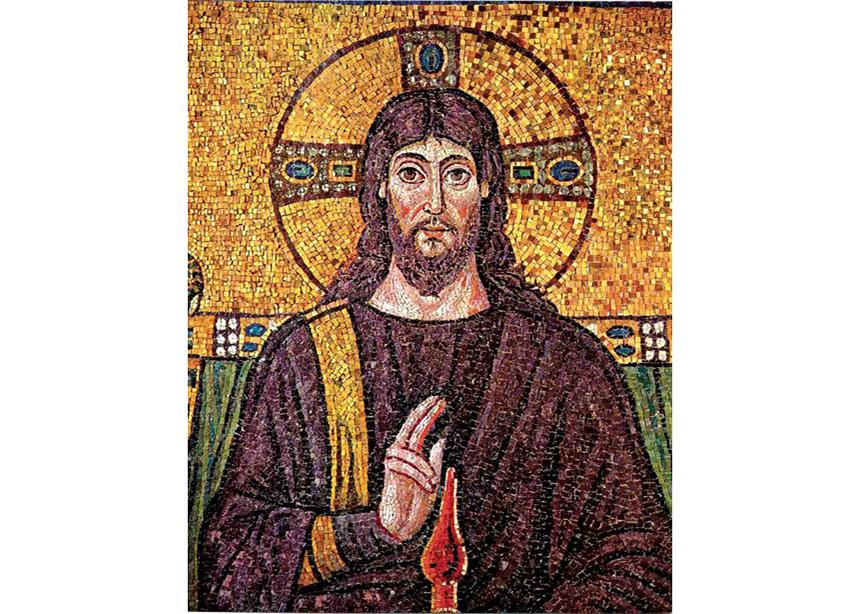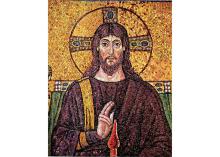I love mosaics. Mosaics are artworks that show an image—a message—made up of many small pieces.
In Christian art, it is common to find mosaics representing an image of Jesus. One example of a Christian mosaic is in the Basilica of Sant’Apollinare Nuovo in Ravenna, Italy. In that piece, called Cristo attorniato da angeli e santi, many stones of different colours and sizes are organized so that the viewer can see a depiction of Jesus.
Human societies are like living mosaics. They tell us their values and priorities by how they are organized and how their members interact.
Capitalist societies value financial progress, even if that means poverty for others.
Totalitarian politics value order over freedom.
Communist societies often seem to privilege economic equity at the expense of personal initiative.
That, of course, is overly simplistic. None of these structures of society are precisely as I have described, but these broad characterizations illustrate that politics transmit a message.
The design of a society—its politics and interpersonal relations—tells us what that society is.
Sadly, every human community or nation includes structures that allow injustice, domination, violence and abuse. Evil is pervasive. Of course, some political systems are worse than others, but all are fallen structures that transmit values and priorities that contradict God’s will and kingdom.
All of these different mosaics and designs of society have emerged after the intrusion of evil in human history. Because we are born outside paradise, we are immersed in politics and social interactions that ignore God’s will. Regardless of where you are born, your country and inherited political system shape you with values and priorities that may contrast with God’s kingdom.
We are like fish swimming in the only reality we know: a fallen and evil world. Without realizing it, we move within evil structures equivalent to water for a fish.
Our financial relations, our systems of domination, how we understand justice, and how we face conflict and disagreements all include evil values from which there is only one way to escape.
Becoming citizens of God’s kingdom
“Repent” is Jesus’ message. Pray for the coming of God’s kingdom; believe in the good news.
That is the escape route toward the freedom Jesus offers, and the mark of a new politics not from this social order.
Repentance is the human response to God’s grace that opens our lives to the Holy Spirit, changing hearts and minds from the inside and creating a just society on the outside.
The Sermon on the Mount (Matthew 5–7) describes that society. The whole sermon speaks to Jesus’ followers as a group, and in doing so, it mentions God’s kingdom eight times. Without being exhaustive, the Sermon on the Mount tells us about the kingdom of God: its ethics, some of its benefits and responsibilities, and who belongs to it.
The new society that organizes itself as God’s kingdom evidences a new creation in which finances, power relationships, justice, leadership and many other facets of communal life add up to a message.
Like the Italian mosaic mentioned before, that message is the image of Jesus.
When we enter God’s kingdom, we receive new citizenship and are freed to experience a new kind of politics. We are not slaves of evil systems anymore. We belong to a new society where, along with other followers of Christ, we project Jesus’ image to the world.
But we still live in our countries and human societies, right? Yes! However, now we do so as representatives of God’s kingdom. Do we look for ways of serving our human communities? Yes, but we do so as ambassadors of God’s kingdom.
This three-part article is adapted from a speech Mennonite World Conference general secretary César García gave at the 9th World Congress of the International Religious Liberty Association. Reprinted with permission.



Add new comment
Canadian Mennonite invites comments and encourages constructive discussion about our content. Actual full names (first and last) are required. Comments are moderated and may be edited. They will not appear online until approved and will be posted during business hours. Some comments may be reproduced in print.